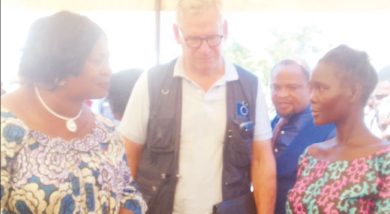Malawi celebrates Fistula Day
Today, Malawi joins the world to commemorate the first-ever International Day to End Obstetric Fistula with a call to redouble efforts to tend what UNFPA calls ‘this grave global injustice’.
The day was recently designated by the United Nations General Assembly to intensify the campaign to end obstetric fistula, commonly referred to as fistula, a medical condition where women develop a hole between the rectum and sexual organs, or the bladder and sexual organs, usually after severe or failed child birth, when adequate care is not available.
Local commemorations, which are being coordinated by UNFPA and will be graced by Deputy Minister of Health Halima Daudi, are being marked by a march from Kamuzu Upper Stadium to Queen Elizabeth Central Hospital, where the main function will be held.
UNFPA’s national programme specialist for Reproductive Health Jean Mwandira said in an interview on Wednesday that the main function will be held together with a fistula camp, a clinic during which women with fistula are repaired.
“We want to raise awareness on fistula among people from this side of the country. There will be different activities, including a testimony from a former patient who has been repaired at one of our camps, among others,” said Mwandira.
According to Mwandira, UNFPA has been holding fistula camps since 2007 and so far, about 500 patients have been repaired successfully.
“The exact magnitude of the problem is not clearly known because women who have fistula are usually stigmatised, so they tend to withdraw from society, to the extent that even when services are available, they do not come out,” explained Mwandira.
She said another challenge is that there are very few local obstetricians to conduct repairs.
“Currently, we are having to rely on foreign surgeons to repair complicated cases, with the local clinicians working on the less complicated cases. This makes the repairs expensive,” said Mwandira, adding that one repair costs about $1 000 (about K380 000).
A statement released by UNFPA states that an estimated two to three million women and girls in developing countries are living with obstetric fistula, a condition that has virtually been eliminated in developed countries.





